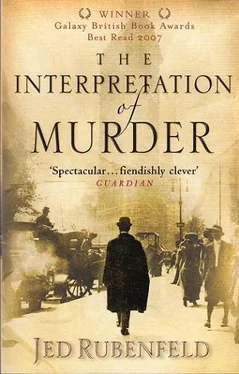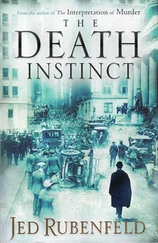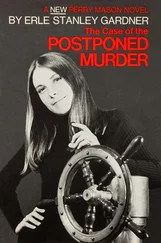Jed Rubenfeld - The Interpretation of Murder
Здесь есть возможность читать онлайн «Jed Rubenfeld - The Interpretation of Murder» весь текст электронной книги совершенно бесплатно (целиком полную версию без сокращений). В некоторых случаях можно слушать аудио, скачать через торрент в формате fb2 и присутствует краткое содержание. Жанр: Исторические приключения, на английском языке. Описание произведения, (предисловие) а так же отзывы посетителей доступны на портале библиотеки ЛибКат.
- Название:The Interpretation of Murder
- Автор:
- Жанр:
- Год:неизвестен
- ISBN:нет данных
- Рейтинг книги:5 / 5. Голосов: 1
-
Избранное:Добавить в избранное
- Отзывы:
-
Ваша оценка:
- 100
- 1
- 2
- 3
- 4
- 5
The Interpretation of Murder: краткое содержание, описание и аннотация
Предлагаем к чтению аннотацию, описание, краткое содержание или предисловие (зависит от того, что написал сам автор книги «The Interpretation of Murder»). Если вы не нашли необходимую информацию о книге — напишите в комментариях, мы постараемся отыскать её.
The Interpretation of Murder — читать онлайн бесплатно полную книгу (весь текст) целиком
Ниже представлен текст книги, разбитый по страницам. Система сохранения места последней прочитанной страницы, позволяет с удобством читать онлайн бесплатно книгу «The Interpretation of Murder», без необходимости каждый раз заново искать на чём Вы остановились. Поставьте закладку, и сможете в любой момент перейти на страницу, на которой закончили чтение.
Интервал:
Закладка:
'Just penciling in his name now,' said Mayhew, without looking up.
'Because he didn't show up for work today?' asked Littlemore.
'How did you know that?'
'Lucky guess,' said the detective. Mayhew had the information he wanted. The Chinaman's full name was Chong Sing. His address was 782 Eighth Avenue, in Midtown. Littlemore asked if Mr Chong ever made laundry deliveries to the Alabaster Wing — more specifically, to Miss Riverford.
Mayhew looked amused. 'You can't be serious,' he said.
'Why not?'
'The man's Chinese.'
'So?'
'This is a first-class building, Detective. Normally we don't even hire Chinese. Chong was not allowed out of the basement. He was lucky to have a job here at all.'
'Bet he was real grateful,' said Littlemore. 'Why'd you hire him?'
Mayhew shrugged. 'I haven't any idea. Mr Banwell asked us to find work for him, and that is what we did. Evidently, he didn't realize how fortunate he was.'
Littlemore s next task was to find the cabbie who picked up the black-haired man Sunday night. The doormen told the detective to try the stables on Amsterdam Avenue, where all the hacks got their horses. But they said he shouldn't bother going until later. The night drivers didn't come on until nine-thirty or ten.
The interval suited Littlemore just fine. It gave him a chance first to take another look at Miss Riverford's apartment and then to drop in on Betty. She was in a much better mood. Agreeing to come out to a nickelodeon, Betty introduced the detective to her mother and gave a goodbye hug to each of her little brothers — who gaped when the detective showed them his gun and who were delighted when he let them play with his badge and handcuffs. Betty, it turned out, had a new job. She had spent a luckless morning presenting herself at the large hotels, hoping vainly to find a spot for an experienced maid. But at a shirtwaist factory near Washington Square, she got an interview with the owner, a Mr Harris, who hired her on the spot. She would start tomorrow.
The hours of Betty's new job were not so nice: seven in the morning to eight at night. Nor was she enthusiastic about the pay, 'At least it's by the piece,' she said. 'Mr Harris says some of the girls make two dollars a day.'
About half past nine, Littlemore went to the stable on Amsterdam Avenue near 100th Street. Over the next two hours, a good dozen hackney drivers came in to drop off or pick up a horse. Littlemore talked with every one of them but drew a blank. When the last stall was empty, the stableboy told Littlemore to wait for one more old-timer who kept his own horse. Sure enough, a little before twelve, an old nag came slow-stepping in, piloted by an ancient driver. At first the old man wouldn't answer the detective, but when Littlemore began flipping a quarter in the air, he found his tongue. He had indeed picked up a black-haired man in front of the Balmoral two nights ago. Did he remember where they went? He did: the Hotel Manhattan.
Littlemore was speechless, but the old driver had more to say. 'Know what he does when we get there? Climbs straight into another cab, one of those red and green gasoline jobs, right in front of my face. Taking money from my pocket, that's what I calls it, and putting it in somebody else's.'
Freud cut our conversation short, abruptly declaring that he had to return to the hotel at once. I understood what was happening. Luckily, a carriage was right at hand.
The instant Freud and I set foot in the hotel, Jung accosted us. He must have been waiting for Freud to return. With inexplicable ardor, he planted himself right in front of Freud, blocking our way, insisting on speaking with him without delay. The moment was the least propitious possible. Freud had just informed me, with evident embarrassment, how pressing was his need.
'Great heavens, Jung,' said Freud, 'let me through. I have to get to my room.'
'Why? Are you having the — the problem again?'
'Lower your voice,' Freud said. 'Yes. Now let me pass. It is urgent.'
'I knew it. Your enuresis,' said Jung, using the medical term for involuntary micturition, 'is psychogenic.'
'Jung, it is — '
'It is a neurosis. I can help you!'
'It is — ' Freud stopped in mid-sentence. His voice changed altogether. He spoke evenly and very quietly, looking straight at Jung. 'It is now too late.'
An extremely awkward pause ensued. Then Freud went on. 'Do not look down, either of you. Jung, you will turn around and walk just in front of me. Younger, you will be on my left. No, on my left. Walk directly to the elevator. Go.'
Thus arranged, we made a stiff procession to the elevators. One of the clerks stared at us; it was irritating, but I don't think he suspected. To my astonishment, Jung would not stop talking. 'Your Count Thun dream — it is the key to everything. Will you let me analyze it?'
'I am hardly in a position to refuse' was Freud's reply.
Freud's dream of Count Thun, the former Austrian prime minister, was known to everyone who had read his work. Reaching the elevator bank, I tried to leave them. To my surprise, Jung stopped me. He said he needed me. We let one car go; the next we had to ourselves.
Inside the elevator, Jung went on. 'Count Thun represented me. Thun: Jung — it could not be clearer. Both names have four letters. Both share the un, whose meaning is obvious. His family was originally German but obliged to emigrate; so was mine. He is of higher birth than you; so am I. He is the picture of arrogance; I am accused of arrogance. In your dream, he is your enemy but also a member of your inner circle; someone you lead, but someone who threatens you — and an Aryan, decidedly an Aryan. The conclusion is inescapable: you were dreaming of me, but you had to distort it, because you did not want to acknowledge that you regard me as a threat.'
'Carl,' said Freud slowly, 'I dreamt of Count Thun in 1898. That was more than a decade ago. You and I did not meet until 1907.'
The doors opened. The corridor was empty. Freud walked briskly out; we followed. I could not imagine what Jung was thinking or what his response would be. It was this: 'I know it! We dream what is to come as well as what has passed. Younger,' he exclaimed, his eyes unnaturally bright, 'you can confirm it!'
'I?'
'Yes, of course you. You were there. You saw the whole thing.' Suddenly Jung seemed to change his mind and addressed Freud again. 'Never mind. Your enuresis signifies ambition. It is a means of drawing attention to yourself — as you did just now, in the lobby. It appears whenever you feel you have an enemy, an opposite number, an un you must overcome. I am now that un. Hence your problem has reappeared.'
We reached Freud's room. He fished in his pocket for the key — a task uncomfortable for him at present. In the end, the key dropped to the floor. No one moved. Then Freud picked it up. When upright again, he said to Jung, 'I doubt very much I enjoy Joseph's gift of prophecy, but
I can tell you this: you are my heir. You will inherit psychoanalysis when I die, and you will become its leader even before that. I will see to it. I am seeing to it. I have said all this to you before. I have told the others; I say it now again. There is no one else, Carl. Do not doubt it.'
'Then tell me the rest of your Count Thun dream!' cried Jung. 'You have always said there was a part of that dream you did not reveal. If I am your heir, tell me. It will confirm my analysis; I am certain of it. What was it?'
Freud shook his head. I think he was smiling — ruefully, perhaps. 'My boy,' he said to Jung, 'there are some things even I cannot divulge. I should never have any authority again. Now leave me, both of you. I will join you in the dining room in half an hour.'
Jung turned without a word and strode away.
Читать дальшеИнтервал:
Закладка:
Похожие книги на «The Interpretation of Murder»
Представляем Вашему вниманию похожие книги на «The Interpretation of Murder» списком для выбора. Мы отобрали схожую по названию и смыслу литературу в надежде предоставить читателям больше вариантов отыскать новые, интересные, ещё непрочитанные произведения.
Обсуждение, отзывы о книге «The Interpretation of Murder» и просто собственные мнения читателей. Оставьте ваши комментарии, напишите, что Вы думаете о произведении, его смысле или главных героях. Укажите что конкретно понравилось, а что нет, и почему Вы так считаете.












